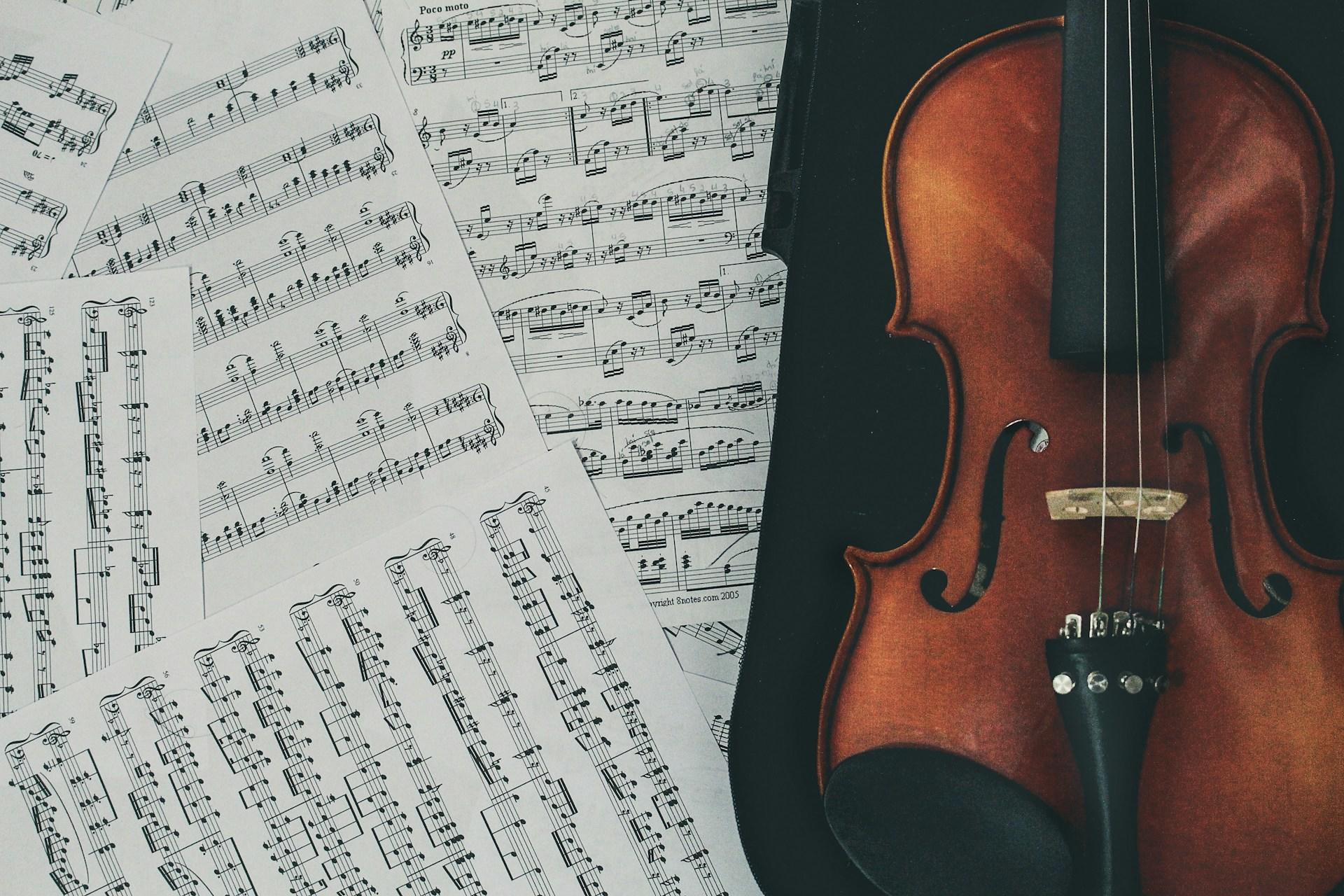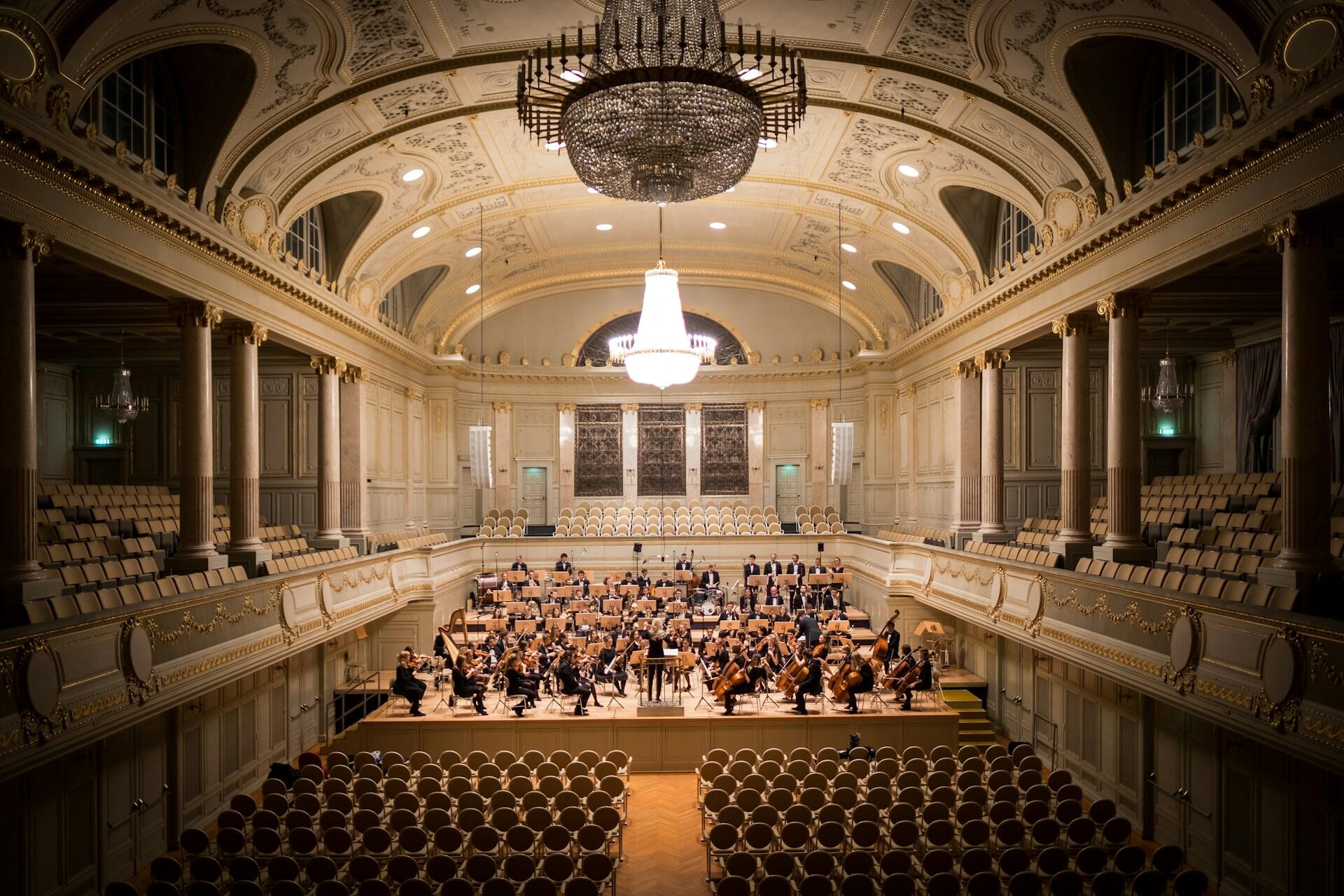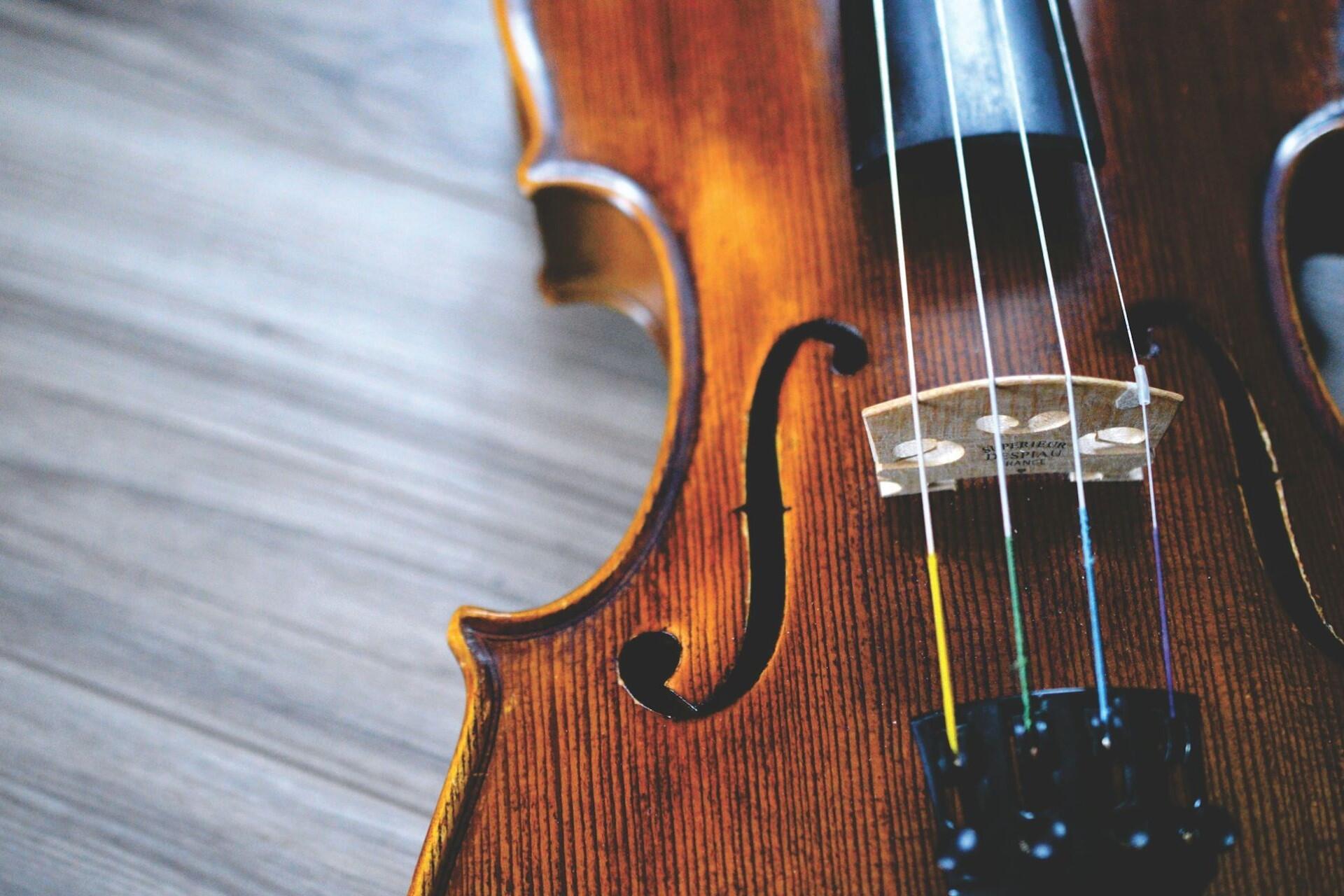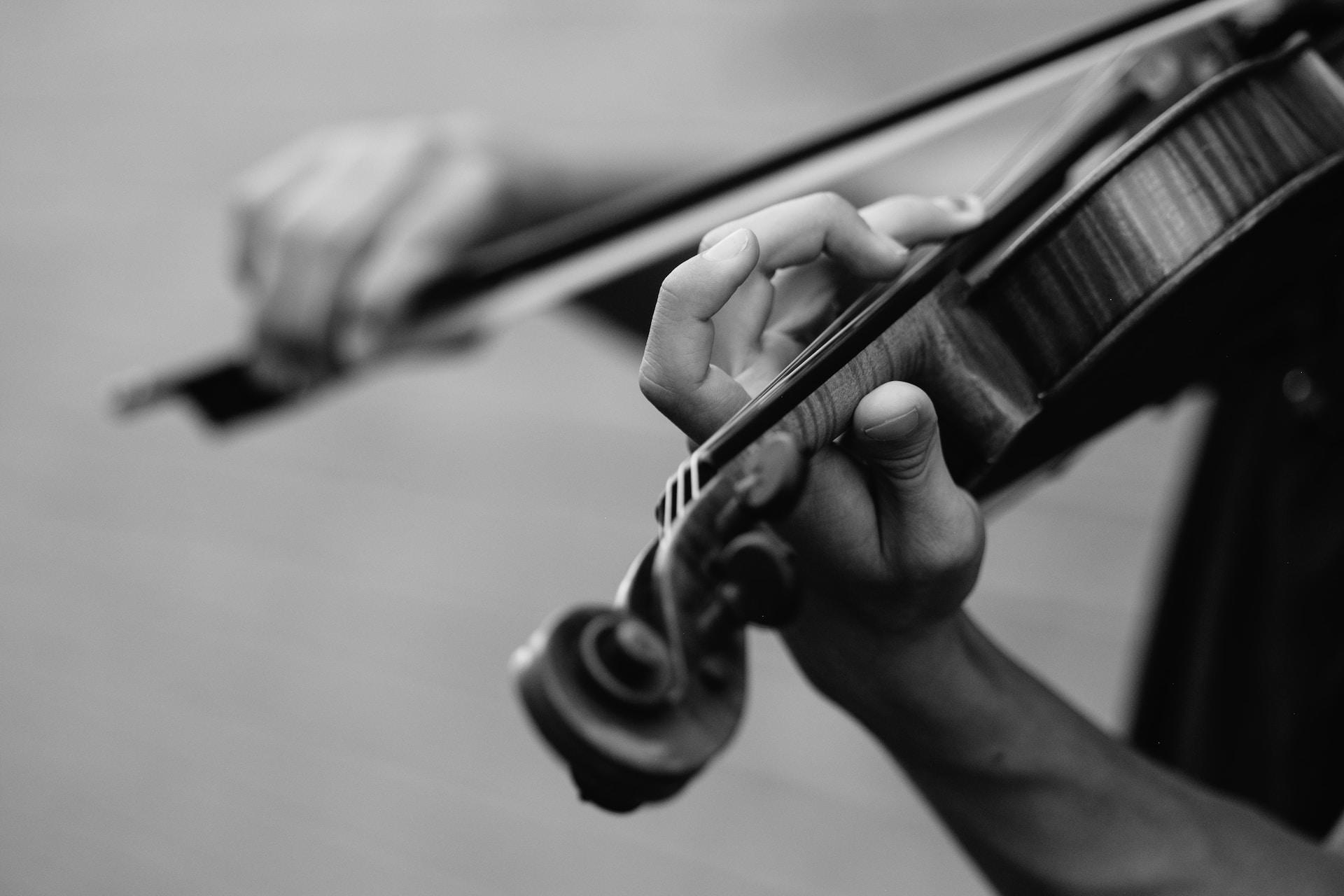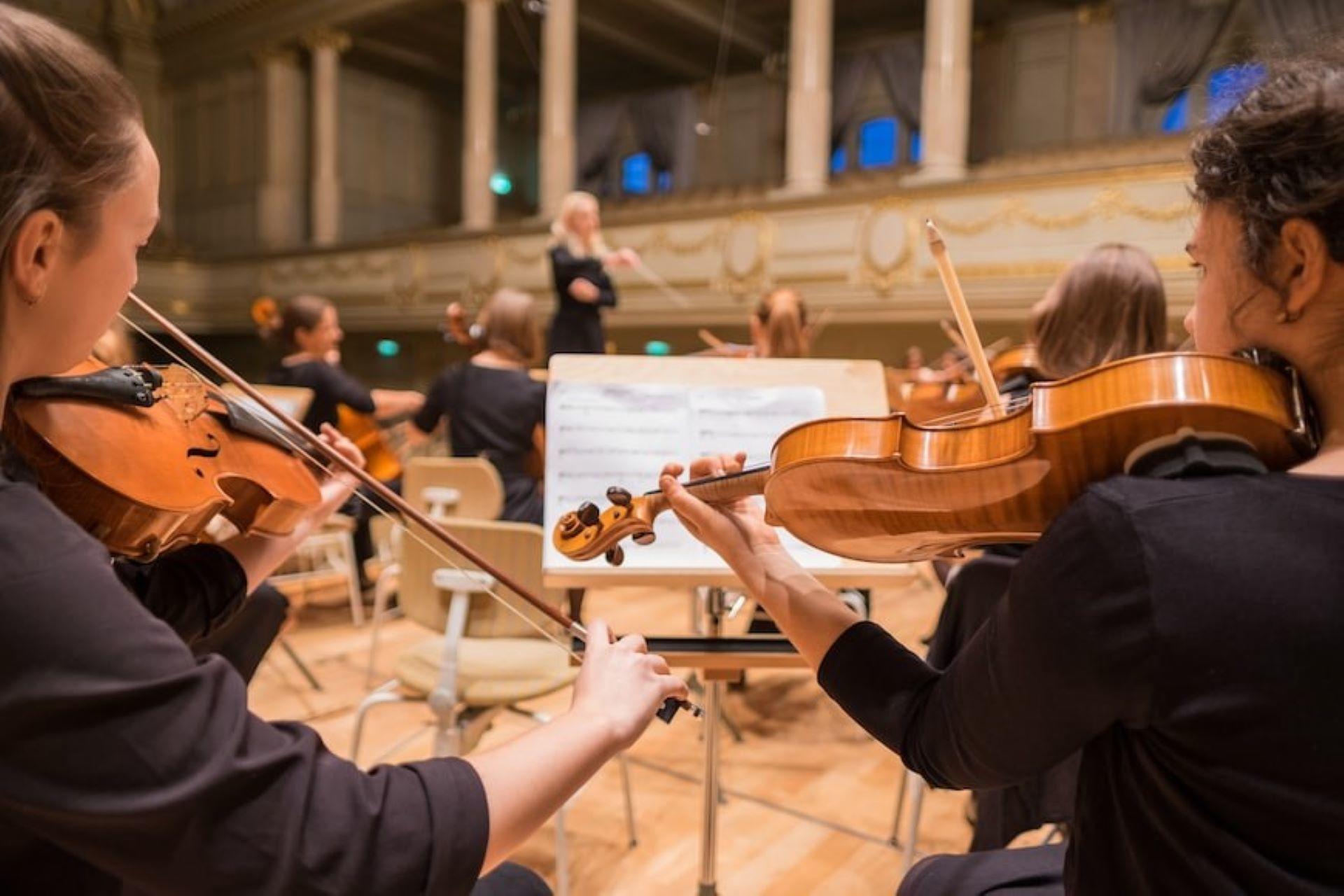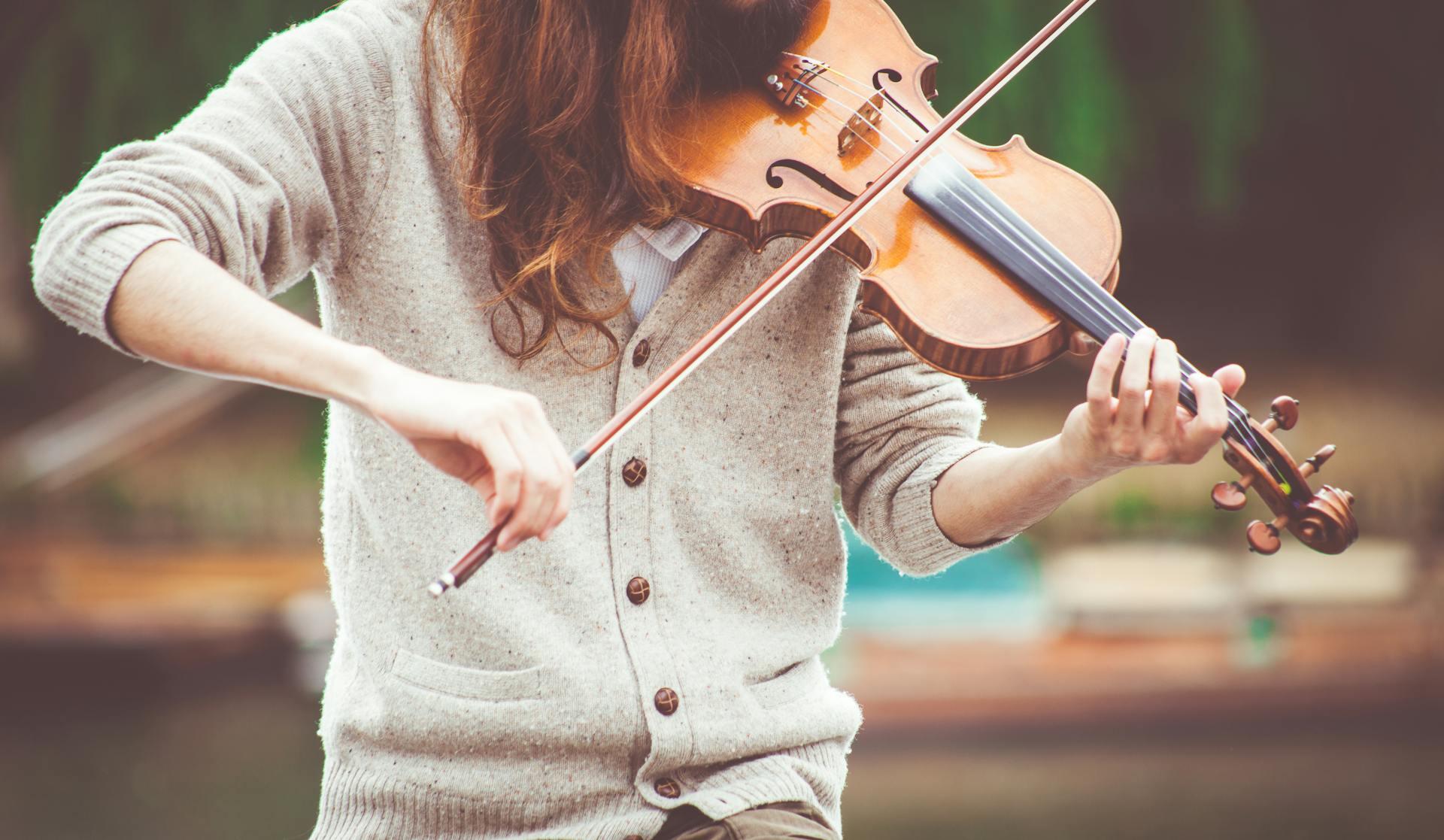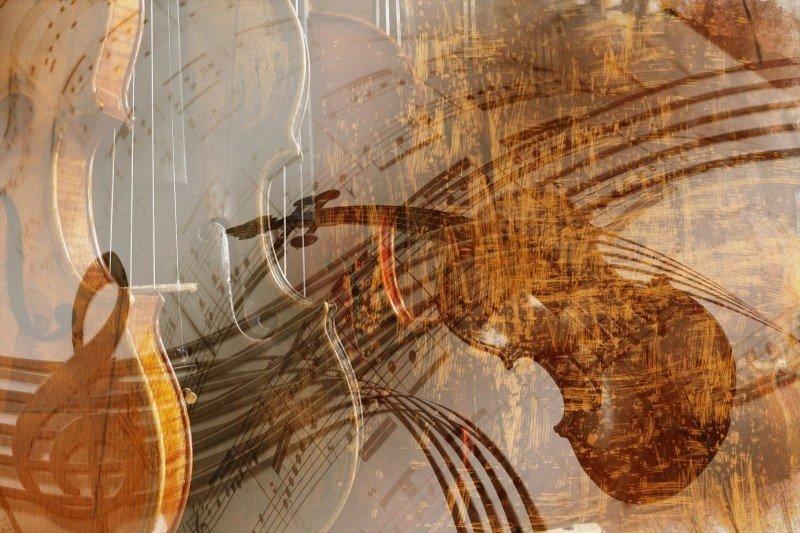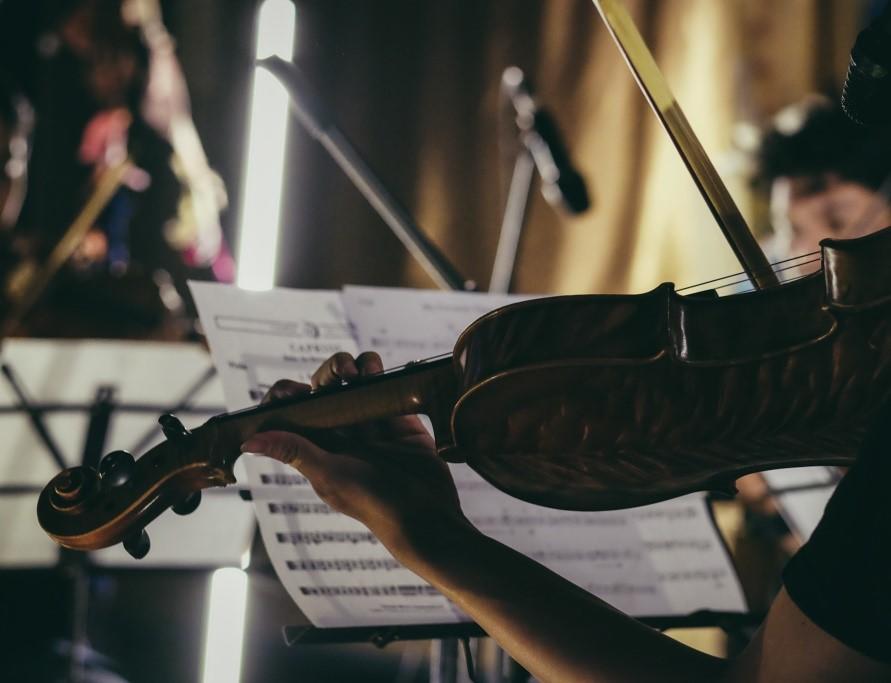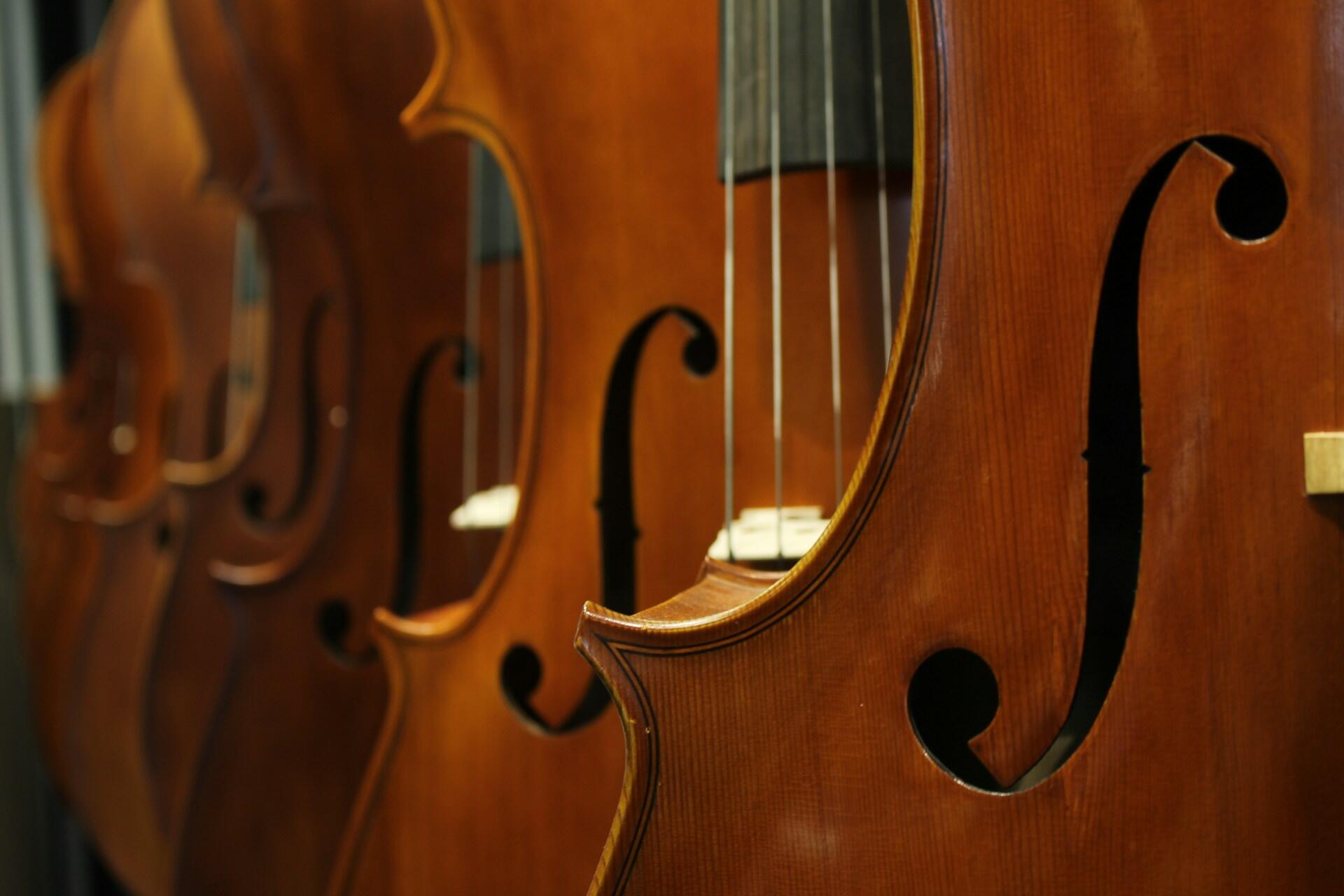For any violinist, choosing the right music school can significantly shape their musical development and profoundly impact their career path. Luckily, many world-class conservatories and universities are offering incredible violin programs to set you on the right path. Here are some of the best.

Bienen School of Music at Northwestern University
To use its full name, the Henry and Leigh Bienen School of Music is Northwestern University's reputable music and performing arts school. You can find it on Northwestern's Evanston campus in Illinois, north of Chicago.
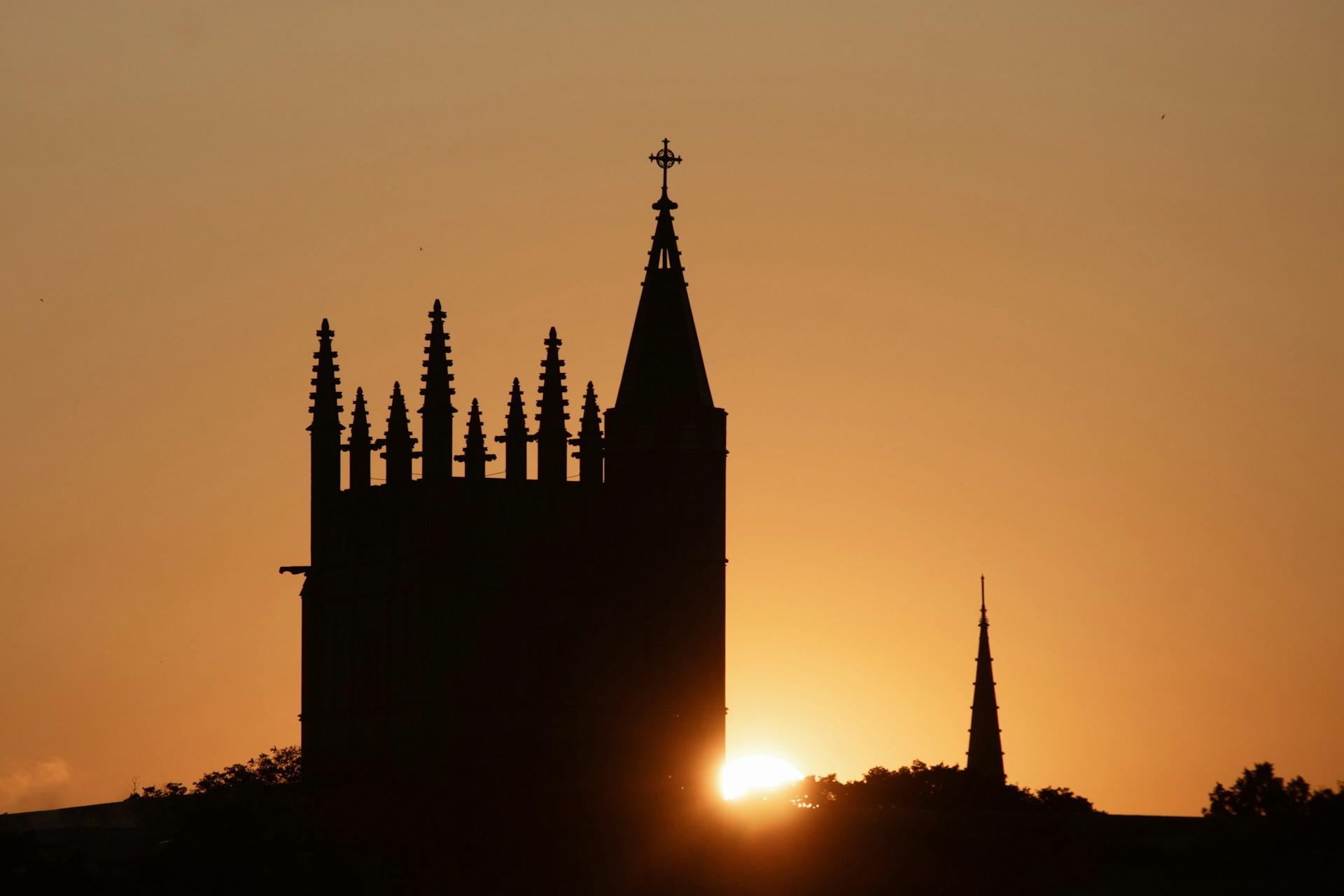
With its exclusive status, the Bienen School of Music admits only a select few hundred undergraduates at a time, adding to its prestige and the unique opportunities it offers. The school includes seasoned violinists like Blair Milton, Paul Kantor, I-Hao Lee, Violaine Melançon, Gerardo Ribeiro, and Janet Sung.
Bienen School of Music is reputed for its program that balances musical education and academic studies with performance opportunities. The acceptance rate for the Bienen School of Music is 10% and tuition fees are $19,254 per quarter.
per quarter
The Bravo Conservatory of Music
The Bravo Conservatory of Music is located in Cupertino, California. It specializes in comprehensive violin training for students as young as four years old. With a combination of private lessons, group classes, and chamber ensembles, there's a good range of options for lots of different types of violinists.
Instruction is offered by a faculty of professional musicians, who bring together performance experience and top-quality teaching. The programs are designed to encourage steady process, with students able to participate in national and international systems like the National Guild and the International Association of Professional Music Teachers (IAPMT).
Performance is central to the Bravo Conversatory of Music, with students regularly taking part in recitals, masterclasses, and community events. The summer camps offer immersive, week-long programs that explore multiple instruments and musical collaboration. Bravo is a great prepatory environment for young violinists aiming to audition for elite youth orchestras, regional competitions, or collegiate music programs.
per full-day summer camp (per-lesson rates vary)
The California Conservatory of Music
The California Conservatory of Music is an excellent school for adults and youth studying violin, guitar, piano, voice, and many other instruments. This institution operates as a community music school with a focus on personalized, one-on-one instruction. For students who need flexibility or prefer remote study, options such as online violin lessons can be an excellent complement.
This institution is known for its welcoming atmosphere, flexible scheduling, and regular recital performance opportunities, making it an ideal choice for all levels. On top of weekly private lessons, there are often recitals, workshops, and ensemble performance opportunities to work on confidence and musicality. The California Conservatory of Music often invites guest artists for special seminars and masterclasses, allowing students to experience a variety of playing styles and perspectives. This is an excellent choice for dedicated students seeking a place to prepare for higher-level auditions or work towards a strong technical foundation in violin.
per 30-minute private lesson
Colburn School
Founded in 1950 in Los Angeles, California, the Colburn School is a private performing arts school that prides itself on its personalized approach, ensuring each student feels valued and supported. It boasts faculty members like Robert Lipsett, Margaret Batjer, and Martin Beaver.
The violin program at Colburn features individual summer lessons following traditional and Suzuki Method instruction for children as young as five, summer camps, and ensemble and orchestra groups. The Colburn School Conservatory in Los Angeles has an acceptance rate of 10% and tuition fees are $57,500.
per academic year
Cleveland Institute of Music
The Cleveland Institute of Music (CIM) was founded in 1920. This is another exclusive private music conservatory with only a few hundred students. The violin program includes various degrees, including:
- Artist Certificate in Violin
- Bachelor of Music in Violin
- Master of Music in Violin
- Master of Music in Violin Performance and Suzuki Pedagogy
- Graduate Diploma in Violin
- Artist Diploma in Violin
- Doctor of Musical Arts in Violin
- BM in Violin Performance and Minor in Suzuki Pedagogy
The faculty boasts renowned violinists like Jessica Jinyeong Lee, Ilya Kaler, Olga Dubossarskaya Kaler, Jaime Laredo, Stephen Rose, Philip Setzer, and Malcolm Lowe. Many of CIM's violin students have gone on to become concertmasters, Grammy-award-winning musicians, and successful violinists, serving as an inspiration to those who follow in their footsteps.
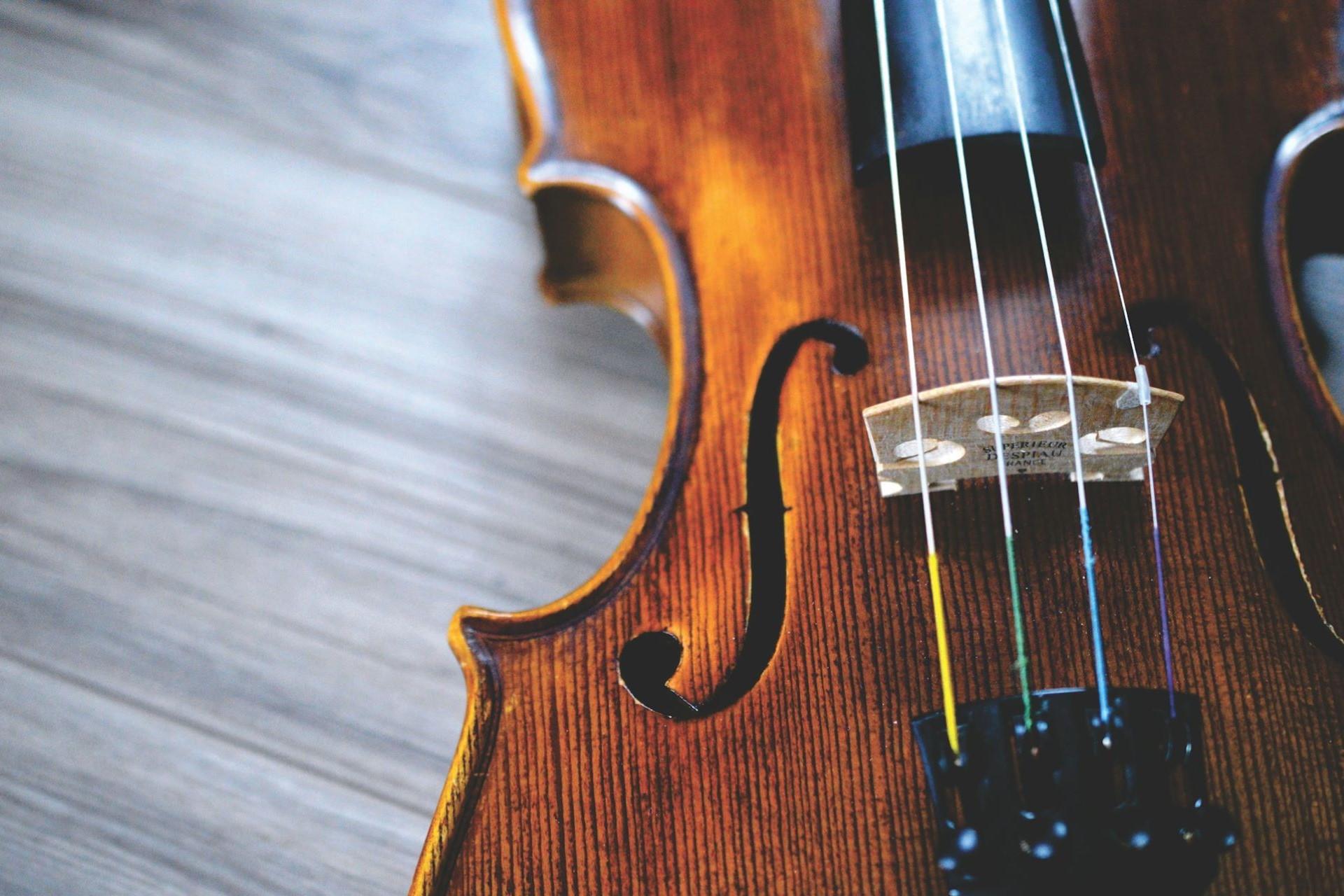
The acceptance rate for the Cleveland Institute of Music is 36.2% and tuition fees are $50,000 per year.
per academic year
Curtis Institute of Music
The Curtis Institute of Music is in Philadelphia, Pennsylvania. This private conservatory has fewer than 200 students and is incredibly exclusive.
The string curriculum at the Curtis Institute of Music includes degree programs for various educational levels, including the diploma, bachelor of music, post-baccalaureate diploma, and master of music. Students applying for the violin program must submit a screening video before being considered for live auditions. These applicants are then prescreened, and the best are chosen for a live audition.
Depending on the program, applicants are expected to play the required pieces from memory, including all major and minor scales and arpeggios. Like any conservatory or music school worth attending, the application process can be challenging. The Curtis Institute of Music has an acceptance rate of 9.7% and tuition fees are very low at $3,500.
per academic year!
Eastman School of Music
[...] one of the most important things they learn is what it takes to achieve real excellence.
Jamal Rossi, Former Dean of Eastman School of Music
The Eastman School of Music is part of the University of Rochester in Rochester, New York. This private music school, established over 100 years ago, offers a range of degrees at various levels. The Eastman School of Music boasts some lovely facilities, including the Eastman Theatre, the Sibley Music Library, and the Student Living Center.
The undergraduate violin program requires students to upload an audition video including memorized performances of a concerto movement and a solo Bach movement. The final audition also requires a concerto movement from the standard repertoire, which must be memorized. The graduate prescreening requirements are similar to a preliminary audition video before a final audition. The acceptance rate for the Eastman School of Music is 13% and the tuition fees are $65,870 per year.
per academic year!
Indiana University Jacobs School of Music
The Indiana University Jacobs School of Music used to be the Indiana University School of Music. This public music conservatory in Bloomington, Indiana, has over 1,500 students, which is much bigger than some of the other private music conservatories we've mentioned thus far.
The string and violin program application process also includes the typical prescreened video audition before an audition. Naturally, undergraduate applicants have different requirements from graduate and diploma applicants. The process is mostly the same, but the required pieces and repertoire differ. The acceptance rate at the Indiana University Jacobs School of Music is 25% for undergraduate students and 33% for graduate students. Tuition fees are $40,369.16.
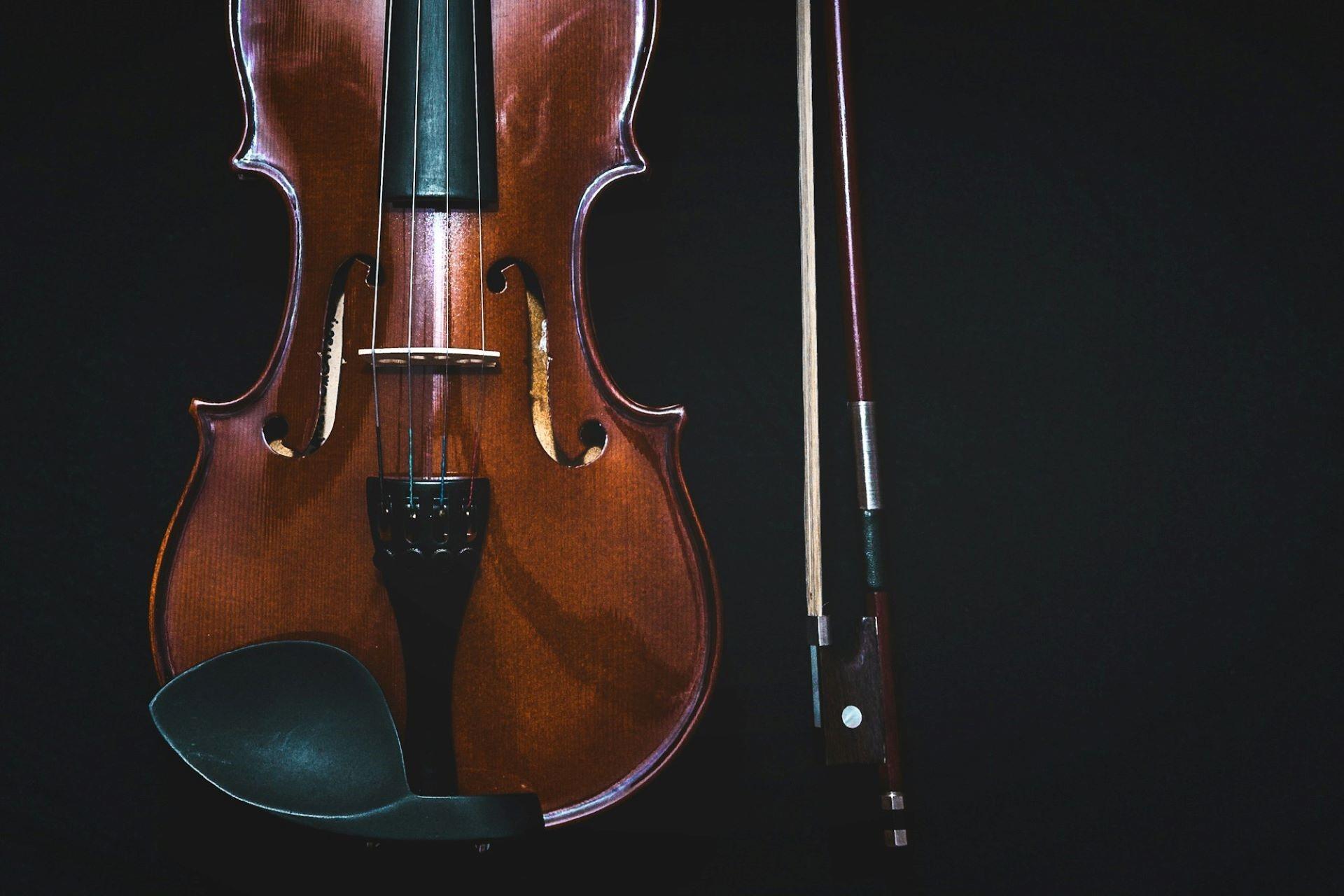
per academic year!

The Juilliard School
People outside of music and performing arts have likely heard of The Juilliard School. Commonly referred to as Juilliard, this private performing arts conservatory is located in New York City and is famous for its many notable alums.
In fact, Juilliard alums have won dozens of Grammys, Tonys, Emmys, and Oscars. Two Juilliard alumni, Marvin Hamlisch and Viola Davis, also have achieved the EGOT, having won all four major awards. As for the strings and the violin programs, Juilliard's String Department is the biggest within the school's music division. Around a third of the students are string musicians.
The department offers various degrees and diplomas, including the Bachelor of Music, Undergraduate Diploma, Master of Music, Graduate Diploma, Artist Diploma, and Doctor of Musical Arts. The acceptance rate at Juilliard is 10.6% and tuition fees cost $54,400 per year.
per academic year!
The Manhattan School of Music
Next, we have the Manhattan School of Music, another private music conservatory in New York City. This school offers degree programs like the Bachelor of Music (BM), Master of Music (MM), and Doctor of Musical Arts (DMA), as well as shorter courses. The strings program allows students to major in harp, double bass, cello, viola, and violin! The acceptance rate for the Manhattan School of Music is 55% and tuition fees are $52,550.
per academic year!
New England Conservatory of Music
The New England Conservatory of Music (NEC) in Boston, Massachusetts, is one of the best private music schools in the country for the violin. While the student body at NEC is undoubtedly smaller than Juilliard, with around 750 students, it's still much larger than many of the other private music schools and conservatories we've seen so far. This isn't to say that NEC is easy to get into, though.
NEC offers various programs for aspiring violinists, including the dual-degree program that provides music training at NEC while also completing undergraduate studies at Harvard University—an incredibly prestigious combination! The acceptance rate for the New England Conservatory of Music is 38% and tuition fees are $58,910 per year.
per academic year!
Peabody Institute of the Johns Hopkins University
The Peabody Institute of the Johns Hopkins University is in Baltimore, Maryland. As the name suggests, this private music and performing arts school is part of Johns Hopkins University. The violin faculty at the Peabody Institute includes names like Vadim Gluzman, Herbert Greenberg, Judith Ingolfsson, Qing Li, and Keng-Yuen Tseng. Unlike many of the other music schools and conservatories we've seen so far, the Peabody Institute doesn't require any prescreening for admissions for the violin program.
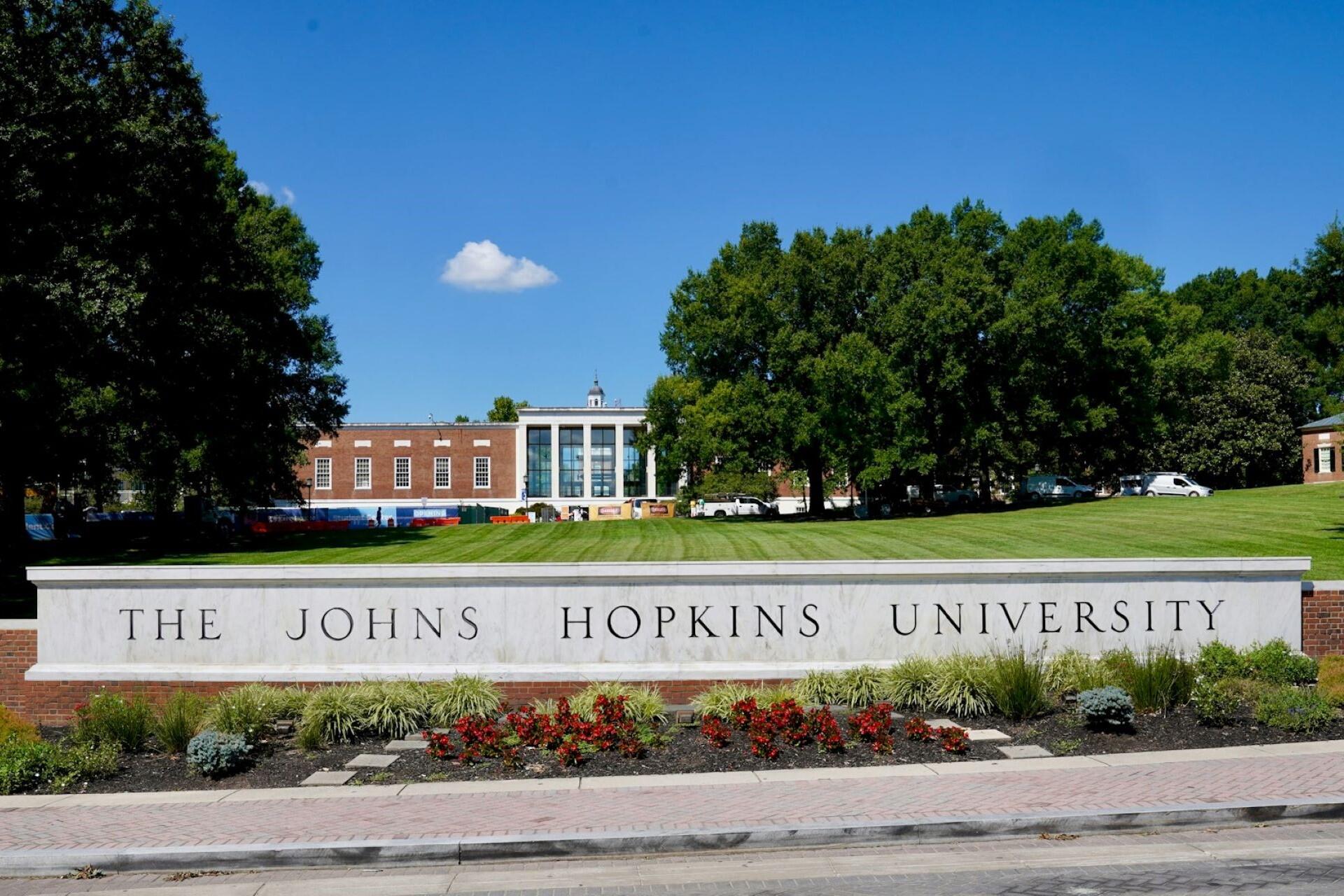
The violin programs include undergraduate and graduate programs, including the Bachelor of Music, Master of Music, Graduate Performance Diploma, Doctor of Musical Arts, and Artist Diploma programs. The acceptance rate for the Peabody Institute of the Johns Hopkins University is 51.6%. Tuition fees cost $64,730 per academic year.
per academic year!
Rice University Shepherd School of Music
The Shephard School of Music is part of Rice University in Houston, Texas. This institution combines the intimacy of a conservatory with the resources of a major research university. The violin program, which is available at the bachelor's, master's, doctoral, and artist diploma levels, is known for providing rigorous technical training and extensive performance experience. Faculty members include internationally recognized musicians with instruction conducted exclusively by professors rather than graduate assistants.
Admission to the Shepherd School of Music is incredibly competitive with acceptance rates between 12% and 15%. Applicants are required to pass a prescreening before a live audition. Though tuition is comparable to Rice's undergraduate rates, the Shepherd School does offer generous merit-based scholarships.
per year
University of Cincinnati College-Conservatory of Music
The University of Cincinnati's College-Conservatory of Music (CCM) is a public institution whose roots date back to 1867. The violin program there offers degrees from the bachelor's level through doctoral and artist diploma programs. The curriculum includes both solo performance and orchestral training. The faculty at CCM includes accomplished performers with extensive recording and international concert experience.
Applicants have to undergo prescreening for certain degrees and then an audition with the acceptance rates for CCM being around 26%. Undergraduate tuition is approximately $14,676 for Ohio residents and $30,010 for non-residents.
CCM boasts some of the finest facilities in the country with multiple concert halls, state-of-the-art rehearsal spaces, and the technologically advanced CCM Village complex. Students can also benefit from collaborations with professional ensembles, masterclasses from visiting artists, and the strong alumni network.
per year
University of Miami Frost School of Music
The Frost School at the Univeristy of Miami is a nationally recognized hub for music education. You can find it in Coral Gables, Florida, where it offers undergraduate and graduate degrees in classical, jazz, music business, music engineering, and education. Violinists have a great range of options to complement their performance skills in violin. Frost's location in a culturally vibrant city means there are opportunities for performance, networking, and exposure to diverse musical traditions, making it a great choice for career-focused violinists.
The student-to-faculty ratio of 6:1 means the school can offer highly personalized instruction to every aspiring violinist, with faculty including acclaimed performers and experienced teachers.
To get in, applicants have to submit prescreening materials and participate in live auditions. Acceptance rates are around 40%, though some programs are far more competitive. Annual tuition is around $60,720, though there are substantial scholarships available including the prestigious Stamps Scholars Program covering full tuition and expenses.
per year
Choosing the Best Music School
While we can tell you which schools, universities, and conservatories are considered the best for their violin programs, that doesn't necessarily mean they're right for you. There are a few things every aspiring violinist should consider when choosing any school or program.
The acceptance rates for the best music schools range between 9.7% and 55%!
The Application Process
Choosing a music school is the same as choosing a college. You'll want to attend the very best, but it's also a numbers game where you need to weigh up your chances of being accepted and how much it'll cost you if you are. Here's a useful table summarizing each school's acceptance rate and tuition fees.
| School | Acceptance Rate | Tuition |
|---|---|---|
| Bienen School of Music (Northwestern University) | 10% | $19,254 per quarter |
| Bravo Conservatory of Music | N/A | ~$600–$699 for full-day summer camp; per-lesson rates vary |
| California Conservatory of Music | N/A | ~$49 per 30-minute private lesson |
| Colburn School | 10% | $57,500 per year |
| Cleveland Institute of Music | 36.2% | $50,000 per year |
| Curtis Institute of Music | 9.7% | $3,500 per year |
| Eastman School of Music | 13% | $65,870 per year |
| Indiana University Jacobs School of Music | 25% (UG), 33% (Grad) | $40,369 per year |
| The Juilliard School | 10.6% | $54,400 per year |
| New England Conservatory of Music | 38% | $58,910 per year |
| Peabody Institute (Johns Hopkins University) | 51.6% | $64,730 per year |
| Manhattan School of Music | 55% | $52,550 per year |
| Rice University Shepherd School of Music | 12–15% | $63,799 per year (UG); $32,685 per year (Grad) |
| University of Cincinnati College-Conservatory of Music (CCM) | 26% (Grad) | $14,676 per year (OH residents); $30,010 per year (non-residents) |
| University of Miami Frost School of Music | ~40% | $60,720 per year |
Reputation and Prestige
Naturally, going to a good school will look great on your résumé. Consider how each school or conservatory ranks nationally and internationally in the music world.
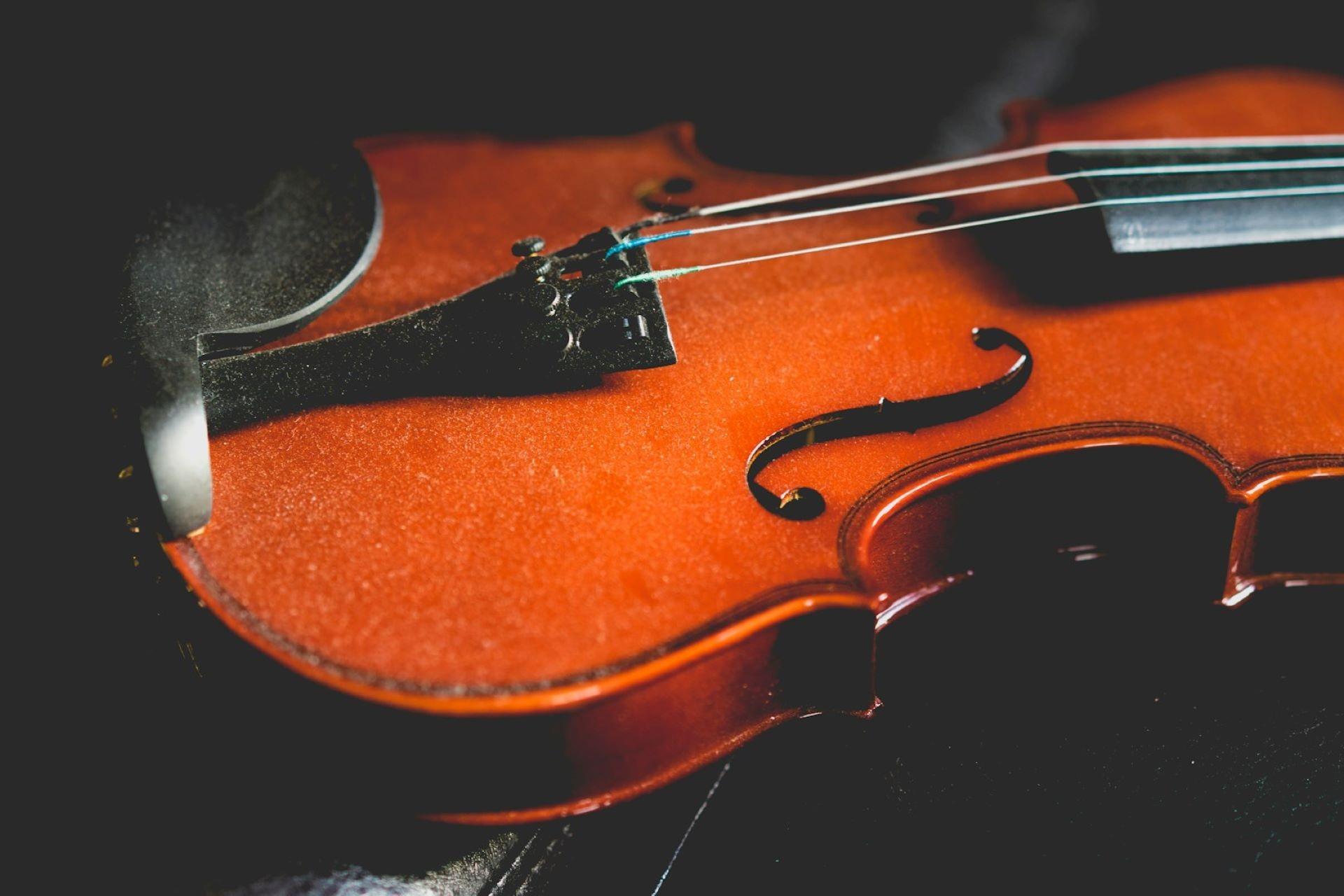
Staff and Faculty
You'll know from school that a good teacher makes all the difference. Remember that learning from a great musician can undoubtedly help, but this won't automatically make them great teachers. Look into what former students had to say about the staff and faculty at these institutions.
The Violin Programs and Curricula
Are you considering solo performance, chamber music, contemporary music, or orchestral studies? Take a closer look at each of the specific programs offered at these schools. Always do your research before applying.
Opportunities During and After the Program
A degree or qualification in the violin is one thing, but finding work and career opportunities as a musician can be incredibly difficult. Look to see what opportunities these schools and conservatories offer both to students on their programs and alums.
Outside of Class
If you're enjoying yourself, doing well in class and your studies is much easier. Consider where these schools are, what other things there are to do where you'll be attending, and if you'll be able to make the most of your studies.
Which is your first choice music school for violin?
Learn How to Play Violin with Superprof
If you need help improving your violin playing for a performance, prescreening, or audition, consider hiring one of the many experienced and talented violin tutors on the Superprof website. Even if you can't find suitable tutors in your local area, remember there are many great online tutors.
Once you have some potential candidates in mind, consider arranging a free lesson with them. Most of the tutors on the website offer their first session for free. Search 'violin' and browse the tutors' profiles today! You may also want to explore violin classes near me for more personalized training.
Summarize with AI:

